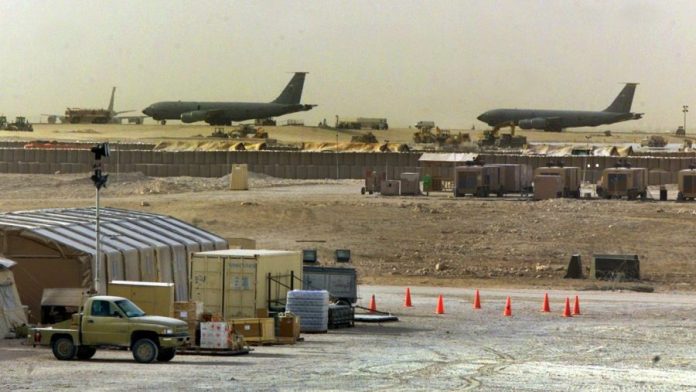
Iran launched an attack on a U.S. air base in Qatar on Monday, announcing that it was to counter the “aggressive and brazen action of the United States against Iran’s nuclear sites and facilities.”
Shortly after Iran fired missiles at the Al Udeid base, America’s largest in the Middle East, it announced the attack on state television, with a caption describing the retaliatory strikes as “a mighty and successful response by the armed forces of Iran to America’s aggression.”
President Trump was already set to meet with his national security team early Monday afternoon, and at the time of the attack was in the Situation Room.
Ahead of the strike, Qatar closed its airspace, citing a credible threat. The U.S. and United Kingdom had already urged their citizens in the energy-rich nation to shelter in place without elaborating, according to the Associated Press.
The Trump administration has maintained confidence that Saturday’s bombings of three nuclear sites in Iran did the job of dismantling Tehran’s nuclear ambitions.
At the Capitol, Speaker Mike Johnson came out against a bipartisan war powers resolution to prevent U.S. intervention in Iran, a show of support for Trump as dozens of lawmakers question the weekend strikes on Iranian nuclear facilities. Reps. Thomas Massie (R-Ky.) and Ro Khanna (D-Calif.) introduced a war powers resolution last week.
Senate Republicans face a crucial stretch in moving Trump’s agenda forward, with the “big, beautiful” tax-and-spending bill expected to hit the floor by midweek. The Senate parliamentarian is assessing the legislation and approving, or in some cases knocking down, provisions that will allow it a fast-tracked vote.
In the House, the annual budgeting process begins, ahead of the fiscal year’s end on Sept. 30.
Follow along today for updates on these topics and more.

